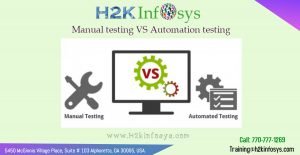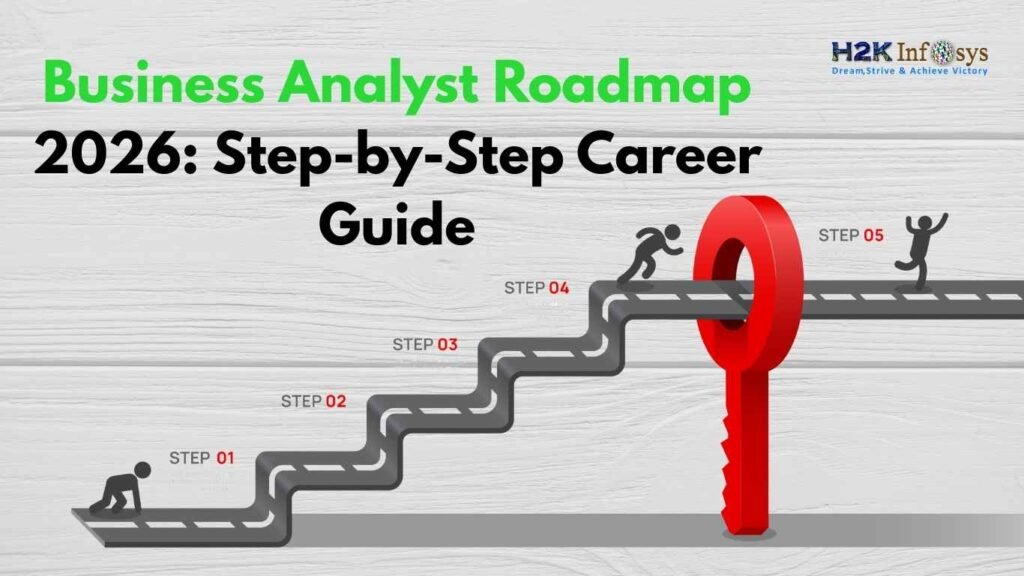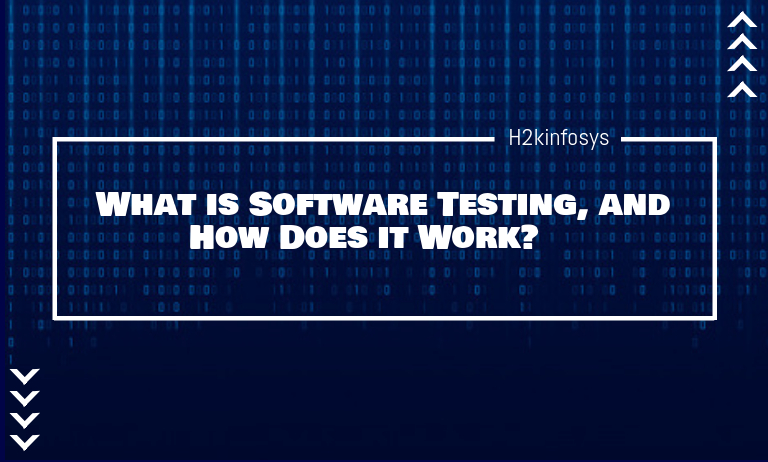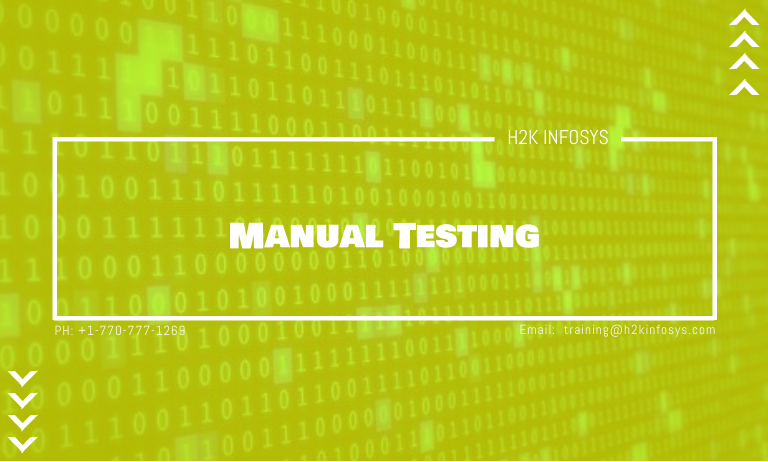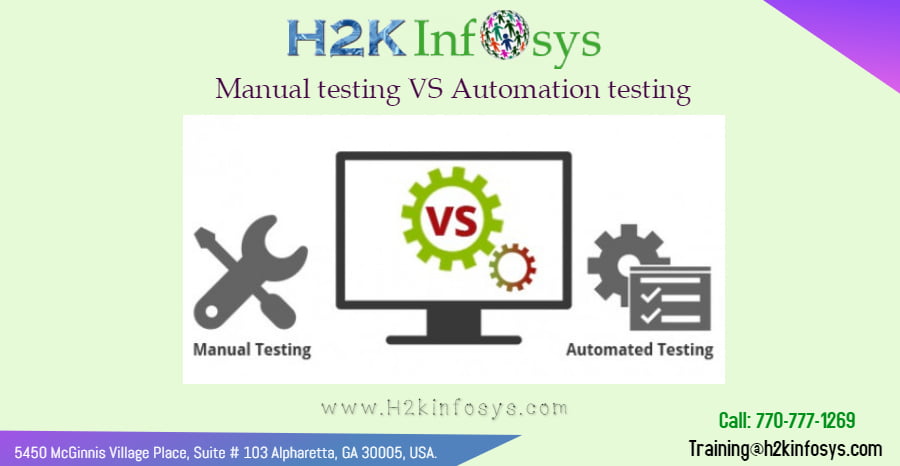A fascinating and gratifying journey can be had when beginning a career in business analysis. Finding a niche can be challenging, though, given how wide and diverse the area is. Here are a few Niches in Business Analysis you can explore. Check out the Online Business Analysis Training to find out more about these niches.
Requirements Niches in Business Analysis Specialist
Business Analysis is a broad field, and as organizations evolve, specialized niches within requirements analysis have emerged. These niches allow Business Analysts to focus on specific areas of expertise based on business domains, technologies, or project needs. Specializing in one of these areas can enhance your career prospects and make you highly valuable to employers.
Functional Requirements Specialist
These analysts focus on how a system should behave. They work closely with end users to translate business needs into detailed functional specifications. This role is crucial for projects involving software development or system upgrades.
Non-Functional Requirements Specialist
This niche focuses on system qualities such as performance, security, scalability, and usability. Non-functional requirements are often overlooked but are critical for ensuring system reliability and user satisfaction.
Domain-Specific Analyst
A domain specialist focuses on a particular industry like finance, healthcare, retail, or logistics. Their deep knowledge of regulatory standards, processes, and customer expectations allows them to define highly accurate and relevant requirements.
Agile Requirements Analyst
In Agile environments, this analyst writes user stories, acceptance criteria, and participates in backlog grooming. They act as a proxy between stakeholders and developers to ensure requirements evolve with user feedback.
Data Requirements Analyst
This role involves gathering and analyzing requirements related to data integration, reporting, and analytics. They define data sources, reporting needs, and data quality standards essential in BI and data-driven projects.
Focusing on a specific requirements niche in business analysis can help you stand out in the job market. Whether it’s functional, non-functional, domain-focused, agile, or data-related, specializing gives you the opportunity to deliver deeper value and excel in your BA career.
Data Analysis and Business Intelligence Expert
The world is moving quickly toward solutions that are data-driven. As a result, the capacity to evaluate data and draw conclusions from it is a highly valued skill.
Are you enthusiastic about using data to drive strategic decision-making, mining insightful data, and utilizing business intelligence?
Large dataset gathering, management, and analysis would be your area of expertise as a data analysis and business intelligence specialist. Organizations may make wise decisions and spur growth by applying data mining, statistical analysis, and predictive modeling tools and methodologies.
Although specific job descriptions may differ, a business intelligence analyst’s responsibilities can be divided into three categories:
- Breaking down key business data: Data like revenue, sales, market data, or customer interaction indicators of a firm may be gathered, cleaned up, and analyzed by a business intelligence analyst. In order to better view or monitor data, BI analysts may also be asked to program tools and data models.
- Data interpretation: A crucial component of a BI analyst’s job is identifying patterns or other areas in the data that point to prospective areas for business practice change. For instance, a BI analyst may examine market trends to determine how a business may need to modify its offering.
- Sharing findings: presenting findings in front of other teams or clients, creating reports, or just visualizing data in graphs and charts are all examples of sharing findings. Additionally, business intelligence analysts will offer suggestions for growing the business based on their findings.
Process Improvement Consultant
A Process Improvement Consultant is a specialized type of Business Analyst who focuses on analyzing, optimizing, and redesigning business processes to improve efficiency, reduce costs, and enhance overall performance. These consultants play a critical role in helping organizations streamline operations, eliminate waste, and adapt to changing market conditions.
What Do They Do?
Process Improvement Consultants work closely with different departments and stakeholders to identify bottlenecks, redundancies, or inefficiencies in current workflows. Using industry-recognized methodologies like Lean, Six Sigma, Kaizen, or Business Process Management (BPM), they analyze end-to-end processes and propose actionable recommendations.
Their responsibilities often include:
- Mapping current (“as-is”) and future (“to-be”) processes
- Conducting gap analysis to identify performance issues
- Facilitating workshops and brainstorming sessions
- Defining metrics and KPIs to track process performance
- Implementing and monitoring changes across departments
They often use tools such as Visio, Lucidchart, or ARIS to create visual process maps, and may collaborate with data analysts to measure the impact of proposed changes.
Skills Required
To excel in this niche, a Process Improvement Consultant must have:
- Strong analytical and problem-solving skills
- Proficiency in process modeling tools and frameworks
- Knowledge of quality improvement methodologies
- Excellent communication and facilitation abilities
- A results-driven mindset with a focus on business value
Industries That Need Process Improvement
Process improvement is vital across various sectors including:
- Healthcare (improving patient care workflows)
- Manufacturing (reducing production delays)
- Retail (optimizing supply chains)
- Banking (streamlining loan processing)
As organizations continue to focus on operational efficiency and cost savings, Process Improvement Consultants are in high demand. For Business Analysts looking to specialize, this role offers a dynamic career path centered on meaningful change and measurable results. It’s ideal for those who enjoy identifying problems and crafting smart, scalable solutions.
Niches in Business Analysis Systems
In the world of Business Analysis, Systems Business Analysts play a key role in bridging the gap between business needs and technology solutions. Their focus is on understanding how various systems, applications, and software components work together to support business operations and goals.
What Is a Systems Business Analyst?
A Systems Business Analyst specializes in analyzing, designing, and improving the integration of technology within an organization. Unlike generalist BAs, systems analysts have deeper knowledge of software systems, data flows, architecture, and technical processes. They work closely with IT teams, developers, architects, and vendors to ensure that proposed solutions align with both technical feasibility and business value.
Key Responsibilities
- Understanding how existing systems interact and identifying areas of improvement
- Creating detailed system requirement specifications (SRS)
- Assisting in the design of system architecture and workflows
- Supporting data integration and system testing activities
- Translating technical details into business-friendly language
- Evaluating third-party tools and system compatibility
Skills Needed
To thrive in this niche, a Systems Business Analyst should have:
- A good grasp of databases, APIs, and system architecture
- Experience with data mapping, workflow diagrams, and integration strategies
- Familiarity with software development life cycle (SDLC)
- Strong collaboration skills to work with cross-functional tech teams
Industries That Rely on Systems BAs
- Banking and Finance (e.g., payment processing systems)
- Healthcare (e.g., electronic health records systems)
- Retail (e.g., inventory and ERP systems)
- Telecommunications (e.g., billing and CRM platforms)
A Systems Business Analyst brings valuable insights to complex, tech-heavy projects. If you’re tech-savvy and enjoy understanding how systems work together, this niche within business analysis offers a rewarding, high-impact career path.
Agile Niches in Business Analysis
With Agile becoming the standard methodology for software and product development, Business Analysts have found new, specialized roles within Agile frameworks. These Agile Business Analyst niches focus on delivering continuous value, collaborating closely with cross-functional teams, and adapting to rapidly changing requirements.
What Is an Agile Business Analyst?
An Agile Business Analyst works within Agile teams (Scrum, Kanban, SAFe, etc.) to define, prioritize, and refine requirements. Unlike traditional BAs, Agile BAs are more iterative in their approach and are deeply involved throughout the product lifecycle.
They collaborate closely with Product Owners, Scrum Masters, developers, QA testers, and stakeholders to ensure features are aligned with user needs and business goals.
Key Responsibilities
- Writing user stories and acceptance criteria for the product backlog
- Participating in daily stand-ups, sprint planning, reviews, and retrospectives
- Collaborating with the Product Owner to manage and groom the backlog
- Gathering feedback regularly and adjusting requirements as needed
- Ensuring user-centric and business-focused outcomes in each iteration
Specialized Agile BA Roles
- Scrum BA – Works exclusively in Scrum teams, focusing on sprint-level deliverables
- SAFe BA – Supports large-scale Agile frameworks like SAFe and collaborates across Agile Release Trains (ARTs)
- Agile Product Analyst – A hybrid of BA and product responsibilities, often assisting Product Owners
Skills Required
- Deep understanding of Agile principles and Scrum methodology
- Strong communication and facilitation skills
- Proficiency with tools like JIRA, Confluence, and Azure DevOps
- Ability to adapt to change and work in fast-paced environments
Agile Business Analysis is an evolving niche with growing demand. If you enjoy iterative work, close team collaboration, and delivering real value in every sprint, this is a dynamic and rewarding path within business analysis.
Domain-Specific Analyst
A Domain-Specific Analyst is a Business Analyst who specializes in a particular industry or functional area. Unlike generalist BAs, domain-specific analysts bring deep knowledge and expertise in sectors like healthcare, finance, insurance, retail, telecommunications, logistics, or manufacturing. This focused knowledge allows them to understand industry-specific challenges, regulations, and workflows, making them invaluable assets in specialized projects.
What Does a Domain-Specific Analyst Do?
These analysts combine core business analysis skills with in-depth industry knowledge to deliver tailored solutions. For example, a healthcare analyst understands compliance with HIPAA and electronic health records (EHRs), while a financial analyst is familiar with regulatory standards like SOX or Basel.
Their responsibilities typically include:
- Understanding industry-specific pain points and requirements
- Analyzing regulatory needs and operational processes
- Translating domain language into technical specifications
- Advising stakeholders based on best practices in the field
- Supporting solution design that complies with industry standards
Examples of Domain-Specific Roles
- Healthcare Business Analyst – Works on hospital systems, EHR integration, and patient management tools
- Banking or Finance BA – Specializes in risk management, payments, compliance, and digital banking
- Retail Business Analyst – Focuses on POS systems, inventory, supply chain, and customer experience
- Insurance Business Analyst – Works with policy management, underwriting, and claims processing systems
Skills Needed
- Core BA competencies (requirements gathering, documentation, process modeling)
- Deep understanding of industry terminology and processes
- Awareness of compliance and regulatory frameworks
- Strong communication and stakeholder management skills
For professionals with experience in a specific domain, transitioning to a Domain-Specific Business Analyst role is a powerful career move. It leverages your existing expertise while adding analytical value, making you a highly sought-after specialist in your field.
Conclusion
Business Analysis is no longer a one-size-fits-all career. As industries grow more complex and technology-driven, the need for specialized Business Analysts has never been greater. Whether you’re starting your journey or looking to pivot into a focused area, exploring niches in business analysis can significantly enhance your career trajectory.
From Requirements Specialists who master documentation and stakeholder communication, to Process Improvement Consultants who streamline workflows and drive efficiency, each niche offers a unique opportunity to apply your strengths. Systems Analysts focus on technical integrations and infrastructure, while Agile BAs thrive in fast-paced, iterative environments. Meanwhile, Domain-Specific Analysts bring industry expertise to projects that require a deep understanding of sector-specific challenges and regulations.
Each niche not only sharpens your skills in a specific area but also increases your marketability. Employers actively seek professionals who can bring both general BA competencies and niche-specific insights to their teams. In fact, having a specialization often leads to higher salaries, faster career advancement, and opportunities to work on more strategic and impactful projects.
The good news? These niches are accessible. With the right training, certifications, and hands-on experience, you can develop the skills needed to excel in any of these areas. Many Online Business Analysis Training programs today are tailored to include real-world projects, industry tools, and mentorship to help you specialize confidently.
By choosing to focus on a niche in business analysis, you not only define your career path you also become an expert that businesses rely on for critical decision-making and innovation. Start learning today, and unlock your potential in one of the most dynamic and versatile professions of the modern workforce.












